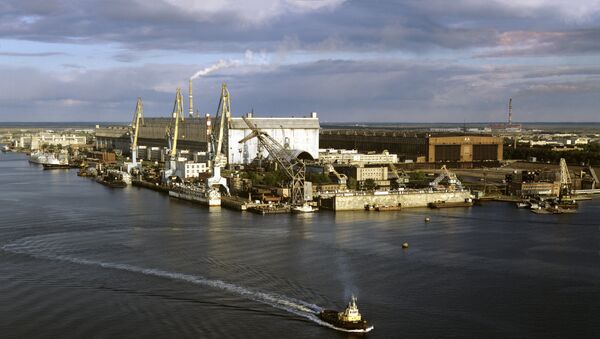Experts from the Federal Service for Hydrometeorology and Environmental Monitoring (Rosgidromet) claim the recent spike in gamma radiation in Severodvinsk, Arkhangelsk Region on 8 August following a tragic incident during military trials is connected to the passing of a cloud of radioactive inert gases.
"It is assumed that the increase in the ADER (ambient equivalent dose rate) gamma radiation registered on 8 August, 2019 is associated with the passage of a cloud of radioactive inert gases. The meteorological situation in Arkhangelsk Region contributed to the rapid dispersal of the cloud", Russia's weather service reports about the identified changes in radiation levels from 5 – 16 August, in information published on its website.
On 13 August the Russian weather service, with reference to the Northern Hydrometeorological Services department, confirmed a spike in radioactive levels in Severodvinsk, Arkhangelsk Region, on 8 August at about 12:30 p.m. Moscow time to 1.78 μSv / h, with the level normalising by 2:30 p.m.
On 8 August an explosion rocked a military training ground near Severodvinsk during testing of a liquid propulsion system. As a result of the accident, two military personnel and five scientists from Russia’s state atomic corporation, Rosatom, were killed. Three more scientists were hospitalised.
Russian officials stated that radiation levels in the northwestern city of Severodvinsk near the accident site had temporarily spiked above the norm before returning to normal after about two and a half hours on 8 August.
A “tiny” concentration of radioactive iodine was detected in the air in the Norwegian province of Finnmark near the border with Russia, Norway’s Radiation & Nuclear Safety Authority announced on 15 August, adding that “the level detected is very low and poses no harm to people nor the environment".
According to the Radiation & Nuclear Safety Authority, it’s “not possible to determine” at the moment whether the small spike in radioactive iodine was associated with the rocket system test accident in nearby Arkhangelsk Region, Russia.
The regulator specified that its conclusions were based on a sample taken between 9 – 12 August, in the days immediately following the incident.




